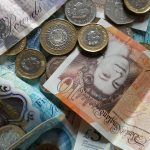currency-used-in-the-united-kingdom
Currency Used in the United Kingdom: Your Essential Guide to GBP!
Currency Used in the United Kingdom: Your Essential Guide to GBP!
Are you planning a trip to the UK or simply curious about its monetary system? Understanding the local tender is crucial for smooth transactions and a hassle-free experience. If you’ve ever asked yourself, “What currency is used in the United Kingdom?”, you’re in the right place. This comprehensive guide will walk you through everything you need to know about the official money of Great Britain and Northern Ireland, helping you navigate your finances with ease.
Understanding the Official Currency Used in the United Kingdom
The official currency used in the United Kingdom is the British Pound Sterling, often simply referred to as the Pound Sterling or just the Pound. Its international currency code is GBP, and its symbol is £. This robust currency is one of the oldest in the world and plays a significant role in global finance.
- Official Name: British Pound Sterling
- Currency Code: GBP
- Symbol: £
- Why “Sterling”? The term “Sterling” originated from the old English word “steorra” (star), referring to the small silver coins known as “sterlings” in medieval times. Today, it signifies the high quality and stability of the currency.
Exploring the Denominations of British Currency (GBP)
The British Pound Sterling comes in both banknotes and coins, each with distinct designs and security features. Familiarizing yourself with these denominations will make transactions straightforward.
Banknotes: From Fivers to Fifties
The Bank of England issues banknotes in several common denominations. These polymer notes are vibrant, durable, and feature prominent British figures.
- £5 Note (Fiver): Features Winston Churchill.
- £10 Note (Tenner): Features Jane Austen.
- £20 Note: Features J.M.W. Turner.
- £50 Note: Features Alan Turing.
While these are the most common, some Scottish and Northern Irish banks also issue their own banknotes, which are legal tender throughout the UK but may be less readily accepted outside their issuing regions.
Coins: Pence and Pounds
British coinage consists of pence and pound coins. There are 100 pence (p) in one pound (£).
- 1p Coin (Penny): Smallest denomination, copper-coloured.
- 2p Coin (Tuppence): Larger copper-coloured coin.
- 5p Coin: Small, silver-coloured.
- 10p Coin: Larger, silver-coloured.
- 20p Coin: Heptagonal (seven-sided), silver-coloured.
- 50p Coin: Heptagonal, larger, silver-coloured.
- £1 Coin (Pound Coin): Twelve-sided, bi-metallic (gold and silver colour), highly secure.
- £2 Coin (Two Pound Coin): Bi-metallic, often features commemorative designs.
Managing Your Money: Practical Tips for UK Currency
Whether you’re visiting or living in the UK, effective money management is key. Knowing the best ways to pay and handle your British Pound will enhance your financial experience.
Cash, Card, or Contactless: Popular Payment Methods in the UK
The UK is largely a cashless society, especially in urban areas. While cash is still accepted, digital payment methods are dominant.
- Debit/Credit Cards: Widely accepted everywhere, from supermarkets to small cafes. Visa and Mastercard are the most common.
- Contactless Payments: Tapping your card or phone is extremely popular for transactions under £100. This includes Apple Pay, Google Pay, and other mobile wallet services.
- Mobile Wallets: Increasingly used for convenience and security.
- Cash: Still useful for small purchases, local markets, or in situations where card machines are unavailable (rare, but possible). Always carry a small amount of cash, especially when travelling to more rural areas.
Understanding Exchange Rates and International Transactions
When converting your home currency to GBP, be mindful of exchange rates and potential fees. It’s wise to plan ahead.
For current exchange rates and official information, always consult reliable sources. The Bank of England website provides up-to-date economic data and news relevant to the UK currency.
Avoid exchanging large sums at airports, as rates are often less favourable. Consider using reputable currency exchange services, withdrawing cash from ATMs (check your bank’s foreign transaction fees), or using travel-friendly debit/credit cards.
A Brief History of the Currency Used in the United Kingdom
The journey of the Pound Sterling is a fascinating one, reflecting centuries of British history and economic evolution. From its origins as silver pence to the modern polymer notes, the UK currency has adapted through various eras, including the Roman occupation, the Norman Conquest, and the formation of the United Kingdom.
To delve deeper into the rich history and evolution of British coinage and banknotes, the Royal Mint website offers a wealth of information and historical context.
Regional Variations: Scottish and Northern Irish Banknotes
A unique aspect of the currency used in the United Kingdom is the existence of banknotes issued by commercial banks in Scotland and Northern Ireland, in addition to those from the Bank of England. While these notes are legal tender throughout the UK, they are most commonly seen and used within their respective regions.
- Scottish Banknotes: Issued by three banks: Bank of Scotland, Royal Bank of Scotland, and Clydesdale Bank.
- Northern Irish Banknotes: Issued by four banks: Bank of Ireland, Danske Bank, Ulster Bank, and AIB.
Don’t be surprised if you receive these notes as change! They hold the same value as Bank of England notes, although some shops outside Scotland and Northern Ireland might occasionally hesitate to accept them due to unfamiliarity.
Understanding the currency used in the United Kingdom, the British Pound Sterling (GBP), is straightforward once you know the basics. From its distinct denominations to modern payment methods and its rich history, the UK’s money system is designed for efficiency and security. Whether you’re a tourist or a resident, this guide equips you with the knowledge to manage your finances confidently across England, Scotland, Wales, and Northern Ireland.
What are your experiences with the British Pound? Share your thoughts or questions in the comments below!
Discover the British Pound Sterling (GBP), the official currency used in the United Kingdom. This guide covers denominations, payment methods, exchange tips, and its fascinating history, ensuring you’re well-prepared for managing money in the UK.
British Pound Sterling banknotes and coins
Featured image provided by Pexels — photo by HANUMAN PHOTO STUDIO🏕️📸









